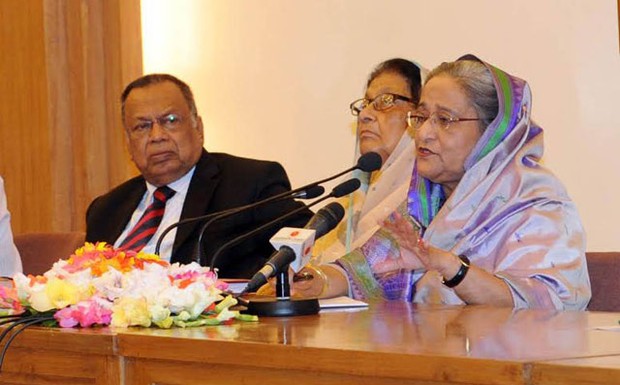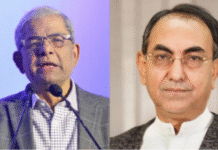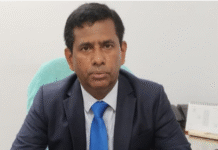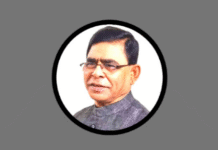Prime Minister Sheikh Hasina has criticised and questioned the position of the West on human rights for their concern over the death sentence of Jamaat-e-Islami chief Motiur Rahman Nizami.
She said it was important to try those who committed crimes against humanity during the country’s Liberation War in 1971 to ensure the cause of human rights.
Bangladesh’s first war crimes tribunal on Wednesday gave Nizami the capital punishment for his wartime atrocities.
He had led Pakistan occupation army’s vigilante militia Al-Badr that carried out systematic to torture and execute pro-liberation elements to abort Bangladesh’s birth in 1971.
The 71-year old Jamaat chief was found guilty in eight of the 16 charges – including spearheading the execution of intellectuals, mass killing, rape and loot – levelled against him.
After that, the European Union (EU) and London-based rights group Amnesty International criticised the verdict and urged Bangladesh to commute the sentence.
“Why would they be concerned about the human rights of those who violated the human rights of millions in the first place?” Hasina said while responding to a question at a press briefing at Ganabhaban on Thursday.
The EU has been expressing concern saying human rights have been violated in Bangladesh over time to time and over the death sentences awarded for committing crimes against humanity, she said.
“…but we need to ensure human rights. Combat militants. And that’s why the war criminals will be tried under the laws of our country,” the prime minister said.
Questioning the EU’s position on human rights, she asked, “I would like to ask the European Union through you (journalists), where was their concern when Israelis killed pregnant woman and children in Gaza? Why didn’t they express their worry? Their concern would have made me happy.”
Regarding the war crimes trials, she said Bangladesh’s courts were trying the suspected war criminals keeping with the international standards.
Hasina referred to the trials of those charged with war crimes committed during the World War II and said those war criminals were still being arrested and tried despite their age.
“People in their country are human beings. And people in my country are not?”
“… Everyone knows who Nizami was,” she said.
Indian media recently reported that Jamaat-ul-Mujahideen Bangladesh (JMB) was regrouping at West Bengal’s Burdwan and preparing to launch a major violent campaign to destabilise Bangladesh by killing Hasina and BNP chief Khaleda Zia simultaneously.
As journalists drew her attention to the issue, the prime minister said, “We have stopped the militants in our country. Now they have taken shelter in India.”
She, however, dodged questions regarding information exchange between the neighbouring countries over the recent relevant events and developments.
But she added that Bangladeshi intelligence officials went to India after the bomb blasts in Burdwan on Oct 2.
India’s Intelligence Bureau had said there were evidence that the explosions revealed a larger ‘trans-regional terror network’ involving JMB, Indian Mujahideen and Al Jihad, a new outfit with bases in Pakistan.
The prime minister on Thursday said she was not a bit worried about her safety. “I’m living an extended life. I was supposed to die a long time ago. I’m not worried.”
“I was confined in 1971. My son Joy was born during that time. I survived in 1975 luckily. After I returned in 1981, I have been facing attacks.”
“I was attacked many times. Death is inevitable. That’s why I will finish my work first – turning Bangladesh into a middle-income country. Then I’ll take my leave,” Hasina said.
Source: Bd news24










